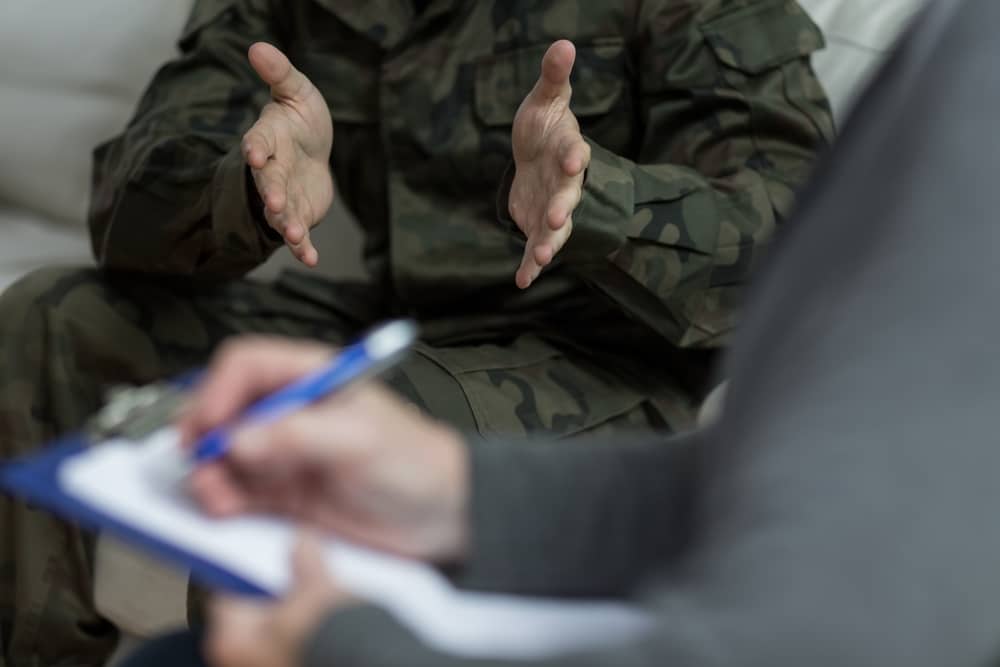Non-Military Trauma & Your Mental Health Claim

Mark is a veteran who served during the Vietnam War. Before being drafted, Mark lived a perfect life. He never experienced any negative events, never got as much as a scratch and most certainly never had any injuries. During service, Mark experienced several traumatic events and was wounded severely. However, after service, Mark continued living the perfect life of never experiencing any physical or emotional trauma.
It should be quite obvious that the above story is false. It is almost never true that a veteran’s life was perfect before or after service. However, often this example is what the VA wants. They want a claim for service connection to be clear and straightforward, but we all know that isn’t reality. Often times individuals who join the military have suffered trauma before and sometimes even after service. This could be in the form of sexual violence, child abuse, intimate partner violence, the death of a loved one, or physical assault.
If you are a veteran filing a claim for your mental health, you may be afraid that the VA will attempt to discredit your claim by saying it was caused by an event outside of service. If you developed anxiety or depression due to your time in the military you may be afraid that the VA will say it was due to something entirely different. How should you approach this? Is there anything you can do to help? This blog will contain several tips to assist you through this process.
|
If you or a loved one are struggling with mental health issues, please know there are resources available. Whether you are looking for legal assistance, mental health counseling, or medications there are people available to support you. Check out VA.gov for the resources available in your community provided through the veteran’s administration. If your claim has been denied, come talk to us.
|
Tip #1: Be honest about your non-military trauma and your claim

Many veterans do not want to share with the VA past trauma unrelated to the military. This could be for several reasons. First, they may not want the VA to credit their mental health to trauma outside of the military. For example, if a veteran experienced sexual abuse as a child and then again in the military, they may believe the VA will state that their current anxiety is due to their childhood and not their experience in the military. Additionally, a veteran may not want to share such personal information or may not have told anyone else about it. If this is true, it could be very difficult to bring this up during your claim process.
When it comes to your claim, it is important to never intentionally keep something from the VA just because you believe it could make your claim more difficult. If a veteran has experienced trauma in a different aspect of their life and it is related to their current mental health symptoms, you are able to mention it. Often times, it will help give a clearer picture of your current mental health. If you withhold information relevant to your claim, the examiner could be confused if your symptoms do not line up with the specific in-service incident.
Tip #2: Be relevant
Please note that during your VA Claim sharing information is crucial only for information relevant to your claim. If you experienced non-military related trauma that does not affect your VA Claim, do not feel pressured to share it. If you lost a close relative when you were young and in-service you were physically assaulted, it is more likely that the symptoms you experience from those two events will be distinct.
It is important to remember that a C&P Exam is not a counseling session. While you can share as much information as you would like, that may not be helpful for you or your claim. If you are unsure about what to share, consult a trusted source on whether or not it is relevant to your claim.
Tip #3: Be clear about your symptoms due to non-military trauma

Be clear about what symptoms you are experiencing and be as detailed as possible. Although this may be distressing, the more detailed you are about what you are feeling and experiencing the more able the examiner is to identify what symptoms are attributable to military and non-military trauma. It is also important to have at least a rough timeline of the events and when you began experiencing symptoms.
If you experienced trauma prior to and during the military be clear about how or if your symptoms lessened before service. If you did not have a stable home as a teenager and experienced traumatic events as a part of this, note how this affected you and how you healed. By doing this, it will be easier for the examiner to differentiate symptoms.
In a similar manner, if you experienced trauma both during and after the military, be clear about your mental health symptoms in the period in between. This can easily become complex because many people who develop mental health issues also develop coping mechanisms to minimize its effect. Therefore, they may not experience the symptoms of a mental health issue until their coping mechanism fails. This can often be seen when veterans become homeless or lose a job. However, when this happens, the stressors/ triggers for your mental health will reveal whether it was related to an in-service incident or an incident out of the military.
Tip #4: Be assertive
The most important thing to remember is to be assertive in your self-care. Self-care is a newer term which means to prioritize taking care of yourself. If you don’t prioritize your own health and wellbeing then you cannot help others achieve theirs. During the VA Claims process, you may be asked to recount distressing memories multiple times. This can be extremely difficult. By being assertive in taking care of your physical, mental, emotional, and spiritual health during this process, a very tiresome process will not be as overwhelming.



